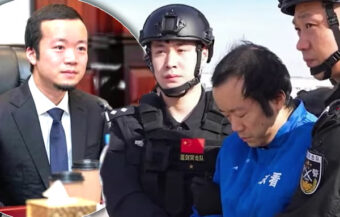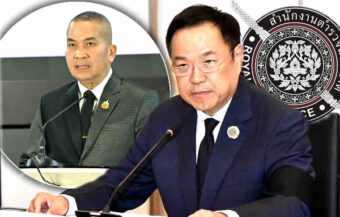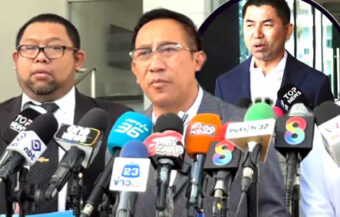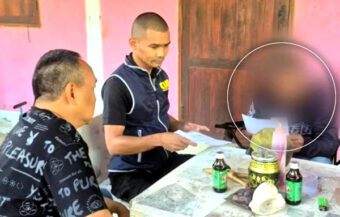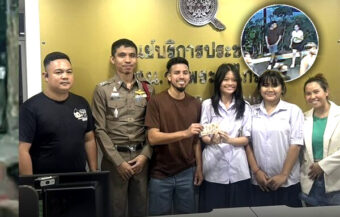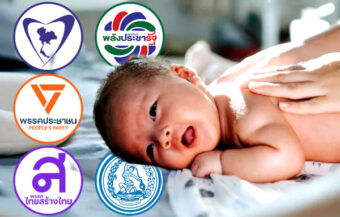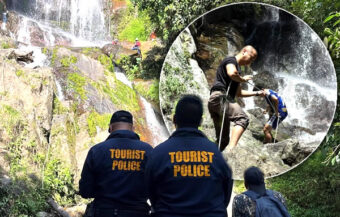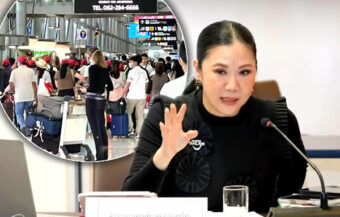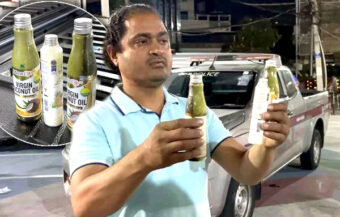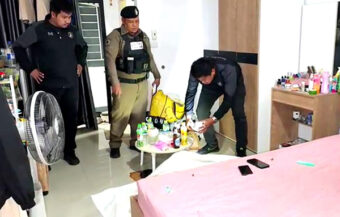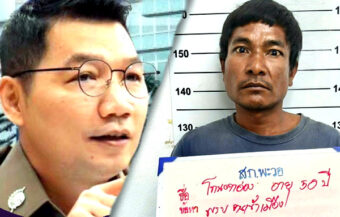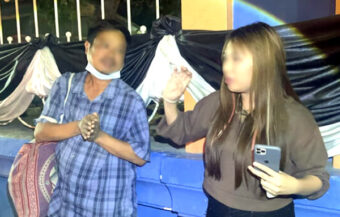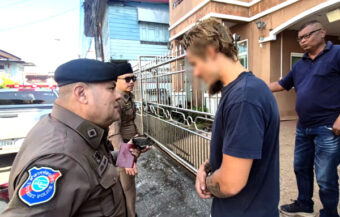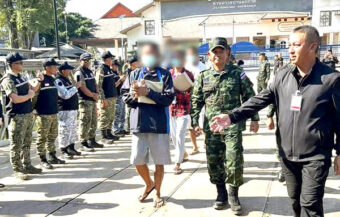Thaksin Shinawatra returned to the spotlight with a fiery speech, branding Myanmar’s Wa drug lords as Thailand’s top enemy, slamming ISOC and anti-drug agencies urging a crackdown and unilateral action if diplomacy fails. “We must not show mercy,” he warned.
Former Premier Thaksin Shinawatra delivered another powerful performance on Tuesday when he addressed a gathering organised by the Office of the Narcotics Control Board (ONCB). Despite being 74 years old, Thaksin remains a man on a mission. His focus was on eradicating the scourge of illegal drugs, with a particular focus on the drug lords operating in the Golden Triangle, specifically Burma’s Shan State. He singled out the Wa State, or the “Wa Reds,” as he called them. Thaksin insisted that if Myanmar cannot control this drug-producing region, then Thailand must take unilateral action.
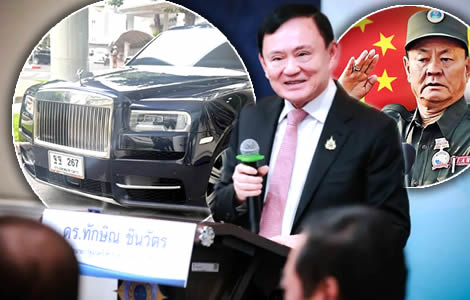
He went as far as to label the Wa Red Army an enemy of Thailand. At the same time, he questioned the effectiveness of the country’s drug enforcement campaigns and its overall security framework. In essence, the former prime minister called for corporate-style governance in Thailand, emphasising clear missions and shared objectives. He also outlined how he would personally lead drug suppression efforts, tackling the issue area by area.
Former Prime Minister Thaksin Shinawatra stormed back into the public eye on Tuesday, issuing a blunt, high-stakes warning on Thailand’s spiralling drug crisis.
Appearing at the Office of the Narcotics Control Board (ONCB), Thaksin delivered a fiery 40-minute speech that doubled as both a policy manifesto and a political gauntlet.
Thaksin Shinawatra returned to public view to issue a fierce warning on Thailand’s worsening drug crisis
Now 74 and freshly recovered despite pending legal controversies, Thaksin declared war on cross-border drug syndicates—singling out the Wa Red Army in Myanmar’s Shan State as Thailand’s top enemy.
His appearance was calculated for impact. Escorted by a full police motorcade, Thaksin pulled up in a gleaming midnight blue Rolls Royce. The crowd of journalists surged forward, jostling to catch a glimpse of the licence plate — Thor Thor 267 — rumoured to be lucky for the upcoming June 1 lottery.
Smiling broadly, Thaksin shrugged off speculation about his legal woes. “I try not to think too much,” he told reporters. “I just enjoy life. Today, my daughter brought me duck from the Four Seasons.”
However, his mood shifted once he reached the podium.
Before a packed room of ministers, generals, senior police, and provincial officials, Thaksin launched into a blistering critique of Thailand’s drug policies, regional diplomacy and bureaucratic dysfunction. “Drugs are destroying our children,” he warned. “Villagers say the economy can wait — but drugs can’t.”
Thaksin blasted Thailand’s drug policies and diplomacy while warning of drugs destroying the nation’s youth
He didn’t mince words. “We must not show mercy to our enemies,” he declared, his voice rising. That enemy, he said, was the Wa Red Army — a militia long accused of running meth labs in the unpoliced jungles of northern Myanmar.
“Production used to be split between regions,” Thaksin said. “Now it’s almost all in Wa Daeng. We know where it is. We can’t pretend not to.”
He described the Wa group as the biggest source of methamphetamine flooding Thai schools, farms, and fishing villages. According to UN data, over 1.1 billion meth tablets were seized in Southeast Asia last year. Most are believed to come from Wa-controlled superlabs.
“If Myanmar cannot manage them, then we must,” he said flatly.
Thaksin did not specifically advocate direct military action but it was implicit. Instead he suggested harsh measures to isolate the Wa. Among his proposals: cut power lines, jam communications, and impose transport blockades on known drug routes. He urged the Foreign Ministry to convene urgent talks with Laos, China and Myanmar. “If diplomacy fails,” he added, “we must act alone.”
Thaksin singled out the Wa Red Army as a top drug threat and urged harsh measures if diplomacy ultimately fails
The speech marked Thaksin’s first official event since the Medical Council disciplined three doctors over his lengthy stay on the 14th floor of the Police General Hospital. Rumours had swirled that he might flee ahead of court hearings. Tuesday’s appearance helped shut them down.
Moreover, Thaksin used the platform to turn up the heat on Thailand’s bloated anti-drug bureaucracy. “We have 29 agencies handling drugs,” he said. “Is that too many? Or is it because of the sweetness of the budget?”
Thailand screens only a tiny percentage of its six million incoming shipping containers each year, he noted. “Some are opened, some are not. Some are intentionally not opened. I don’t know why.”
Although he held back from naming names, Thaksin accused certain Thai officials of deliberately looking away. “The big traders have fled across the border, but their networks remain here. Some officials pretend not to know — or don’t want to.”
Thaksin criticised Thailand’s fragmented anti-drug effort. Accused officials of ignoring trafficking networks
Then came the showstopper: a direct challenge to ISOC, Thailand’s shadowy Internal Security Operations Command. “ISOC is everywhere,” he said. “Three billion baht goes to the South. The other four billion is general. But people are asking — should ISOC be dissolved?”
He paused before answering. “This is a test. Let ISOC show what it can do. If it fails, people will ask what it’s for.”
With a ฿7-billion budget and nationwide reach, ISOC is seen by many as untouchable. Thaksin dared them to prove their worth. “Drugs are now a national security threat,” he insisted. “Let ISOC prove it can handle them.”
Thaksin also revived his “white zone” strategy — an old policy from his premiership that aimed to declare villages drug-free through heavy policing, reward systems, and public pressure. “We must X-ray every inch of Thailand again,” he said. “Make every village and community white. That’s the only way.”
He said he was willing to help personally. “I’m old and have nothing to do,” he joked. “Let me go into the provinces. I’ll report back which villages still have drug dealers. I’ll even be a tattletale.”
Thaksin challenged ISOC’s effectiveness and revived his ‘white zone’ plan to declare villages drug-free nationwide
In another punchy proposal, he called for a fresh crackdown on illicit assets. “Too many dealers are still living comfortably. That must end,” he said. He asked both Prime Minister Paetongtarn and Interior Minister Anutin to take the lead on seizing drug-linked wealth.
Thaksin didn’t stop at policy ideas. He attacked the government’s chaotic administrative culture. “We’re not managing. We’re just doing transactions day by day,” he said. “There’s no strategy. No goal. No host and No KPIs.”
KPI, of course, meant Key Performance Indicator.
He called for a shift to “corporate-style management” and demanded that governors and provincial police work in tandem. “No one can do it alone,” he said. “The governor and police chief must move as one.”
Justice Minister Thawee Sodsong, who chaired the meeting, later confirmed that Thaksin was invited in his role as adviser to the ASEAN Chair. “Drugs are no longer a national issue only. They are a transnational threat,” Thawee said.
Thaksin urged corporate-style governance to improve drug suppression and seize illicit wealth
Senior attendees included National Police Commissioner Gen. Kittirat Phanphet, Defence Minister Phumtham Vejjayachai, Public Health Minister Somsak Thepsuthin, Interior Minister Anutin Charnvirakul and DSI chief Pol. Lt. Col. Yuthana Praedam. All listened intently.
Yet the meeting carried political undertones. With the Supreme Court’s Criminal Division for Holders of Political Positions set to rule on June 13 over Thaksin’s hospital stay, his ONCB appearance countered allegations that he had quietly fled the country.
Earlier speculation had grown after the May 8 Medical Council vote to punish the doctors who signed off on his hospitalisation. Tuesday’s event turned those rumours on their head.
Instead of lying low, Thaksin seized the moment to reframe the public debate. He portrayed drugs as a looming existential crisis for Thailand and positioned himself as one of the few leaders willing to tackle it head-on.
Thaksin used his ONCB speech to dispel rumours and reposition himself as a leader tackling the drug crisis
His message was clear: the state must act, and quickly. Methamphetamine pills are now as cheap as bottled water in northern provinces. Teenagers can buy them for ฿10 apiece. Families are being shattered. Entire communities have been hollowed out.
Even so, he ended with a chilling warning. “If you still produce drugs,” he said, “you are the enemy of Thailand. We must not be merciful to our enemies.”
Thaksin to address state board on drug suppression despite howls of protest from human rights groups
PM Paetongtarn confirms her father Thaksin will be in court on June 13th. Trade proposals sent to the US
River Kok in Chiang Rai poisoned with arsenic from Wa state-controlled gold mining across the border
Thailand a battery or conduit for the world’s largest drug source, the Wa State, says People’s Party MP
It was a battle cry. And it was also a dare.
Whether the current government picks up the gauntlet remains unclear. But one thing is certain — Thaksin Shinawatra has returned to the national stage, and this time, he came armed.
Not just with words, but with a mission.
Join the Thai News forum, follow Thai Examiner on Facebook here
Receive all our stories as they come out on Telegram here
Follow Thai Examiner here
Further reading:
Thaksin to address state board on drug suppression despite howls of protest from human rights groups
Health Minister Somsak launches regulatory blitz to outlaw non-medical cannabis use within 40 days
Buriram cannabis factory raided for illegal Vietnamese staff as drugs czar declares a new regime
UK ambassador meets top Thai officials to hear about plans to rein in cannabis as smuggling surges
UK holiday maker to Thailand lands in Heathrow Airport London with £1 million worth of cannabis
Dark web Xanax counterfeiting gang managed from Thailand smashed in the UK with 10 people convicted
Unlikely rags to riches convict star arrested again in Thailand over online gambling promotion


